Where does the Panamanian rose coffee variety come from? Emerald Manor New Season Launches Sunlight Blue Standard Rose Summer
Professional coffee knowledge exchange more coffee bean information please follow the coffee workshop (Wechat official account cafe_style)
Since 2004, Panama's Rose Summer Coffee has first smelled fragrant, and Lien Chan's good performance has made Panama the "birthplace of the finest Rose Summer Coffee in the World" and become the new overlord of boutique coffee industry. The rich floral aroma of Panamanian rosy summer coffee, the sour aroma of citrus, and the sweetness of nectar make many coffee glutton lose under the pomegranate skirt of rosy summer coffee. Qianjie Coffee is one of them. Panama rose summer became famous, and the meritorious ones had to mention the emerald estate from the Peterson family in the Pokuit region.
Pocket.
Boquete
Panamanian coffee is mainly grown in the eastern and western foothills of the Baru volcano in the west. Poquet is located at the eastern foot of the Baru volcano, cool and foggy, and the mountainous geographical environment creates a unique microclimate. Cool climate and frequent fog help slow down the ripening process of coffee fruit, similar to high altitude, the coffee flavor in this producing area ranges from cocoa to fruity, with slight acidity.
Jadeite Manor
La Esmeralda Estate
Emerald Manor is located in Pocket. In 1964, American banker Rudolph Peterson retired, moved to Panama, and bought the Emerald Manor in Pokuit, initially dominated by dairy industry. Then his son Price resigned as a doctor to help his father run the farm, introduced Kaddura and Kaduai coffee beans in 1987, set up a washing plant in 1994, and has had its own coffee processing plant ever since. In 1996, Haramiyo Manor, which has a superior geographical environment and good flavor of the original coffee varieties, was bought and incorporated into the Jadeite Manor.
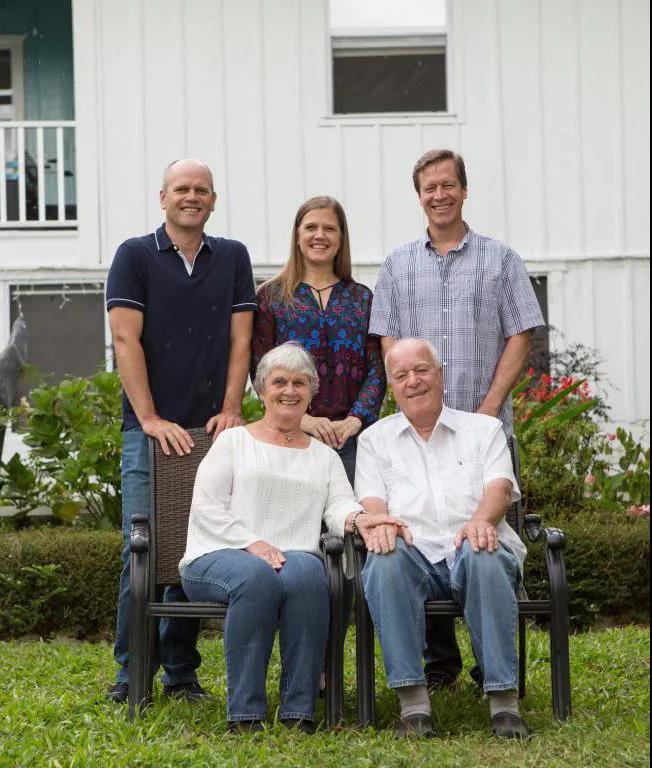
In the early days, the Petersons mixed coffee from the two estates, but they always felt that the beans had a faint floral aroma of orange, which tasted a bit like berries. In 2002, the owner's son thought the aroma was coffee beans from one of the estates, so he identified the source of the aroma by testing the varieties of the two manors at different elevations one by one.
The charming aroma created by the windbreak forest in a harsh environment
Through the cup test, the Peterson family found that the charming aroma of the coffee beans came from the windbreak area of the Haramillo estate. Haramillo was chosen by the Petersons, and it was the coffee beans they had grown, with pleasant aromas of orange and fruit, different from the original flavor of Panamanian coffee. In this area, the elevation is the highest in the manor area, about 1500-2000m. The coffee trees planted are thin, tall, with sparse leaves and low yield, so they are used by the garden owners as windbreaks to protect coffee from other high-yield areas.

At that time, the owner did not know what kind of coffee tree was planted here, because the wind was so strong and the temperature was very low in the windbreak forest. Ordinary coffee trees could not be planted, but this mysterious variety of coffee trees was happy and happy. The coffee fruits were also fatter than half of the varieties and were not easy to blow off. Although the yield was only 25%-30% of Kadura, the floral orange fragrance was very attractive. Strangely enough, this variety also has an area planted below 1400m but lacks floral orange aromas and has a more bitter taste.
Such a mysterious breed is now known as the rose summer
Rose summer coffee beans are slender, the flavor is also fresh and pleasant, from these two points of view, rose summer really does not like Central and South American coffee varieties, but more like Ethiopian coffee varieties. When was the summer introduced to Panama? Discovered in 1931 in Ethiopia's rosewood forest. Rosewood was then sent to coffee institutes in Kenya, introduced to Uganda and Tanzania in 1936, Costa Rica in 1953, and Panama around 1960.
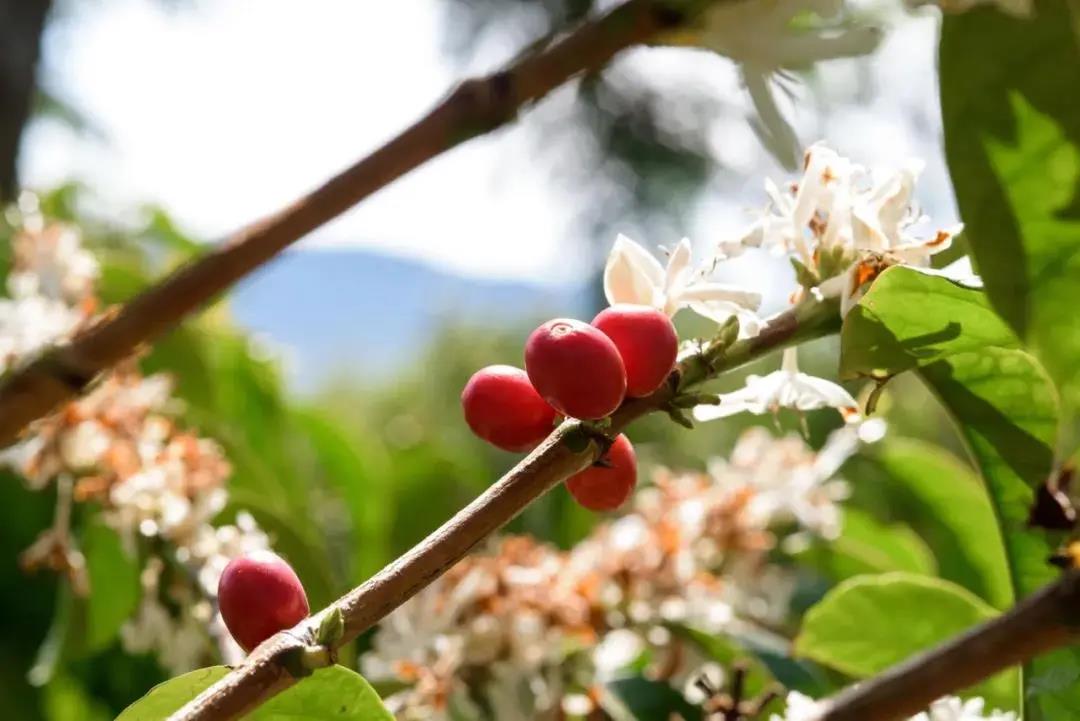
Although rose summer disease resistance, but low yield, so people at that time cited this quality as a variety of improved plants disappeared, until the owner of the estate rediscovered them in the windbreak. Although the Petersons weren't the ones who introduced the variety, they did make summer coffee a "brewer." In 2004, the father and son took part in the BOP Cup Test Competition in 2004. Its aroma and taste really fascinated the judges and became famous in the first battle, setting a record price of 21 pounds per kilogram at that time.
Emerald Manor plot classification
Emerald Estate is divided into three plots: Jaramillo, Canas Verdes and El Velo. Each plot will be further refined to small plots.
Jaramillo has an annual rainfall of 4000ml, an average temperature of 19-25 ° C during the day, an average temperature of 11-15 ° C at night, and an average altitude of 1,600 - 1,700 m. The Jaramijo plot is subdivided into five small plots: Mario (Mario), Noria (Ferris wheel), Reina (Queen), Bosque (Forest) and Buenos Aires.
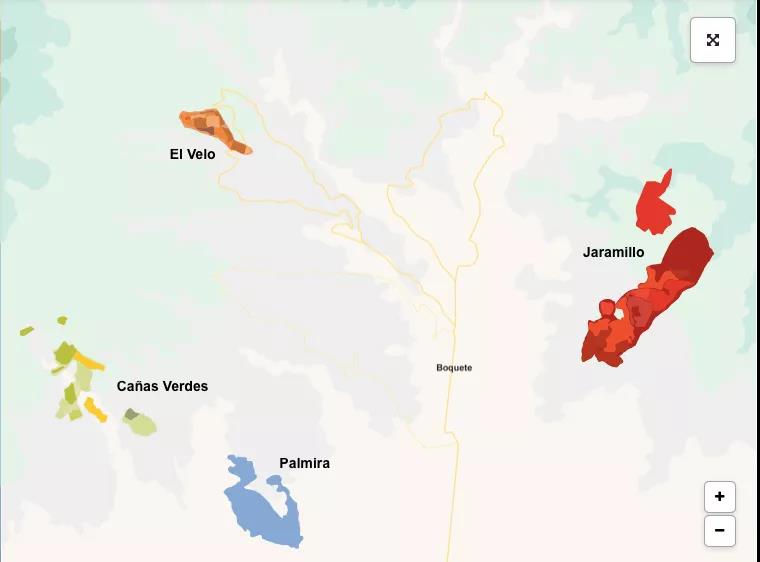
The annual rainfall of Canas Verdes is 3500ml, the average temperature in daytime is 16-23 ℃, the average temperature at night is 10-15 ℃, and the average altitude is 1600-1800m. Cannes consists of nine small plots: Lino (flax), Coronado (coronation), Fundador (founder), Le ó n (Leon), Montaa (peak), Trapiche (sugar), Chinta (urn), Cabaa (cabin) and Tumaco (Tumako).
Veil (El Velo) is the latest purchase of the Jadeite Manor, with an average elevation of 1700-1900m. In addition to planting Rosa and Kaduai, the site also has a small number of other exotic species, such as Laurina, Pakamara, Mocha and SL28. The veil is divided into seven small plots, namely: Guabo, Port ó n (Portal), Durazno (Peach), Higuer ó n (fig tree), Higo (fig), Buena Vista (Buena Vista) and guila (Eagle).
Jadeite Manor Rose Summer Classification
After years of experiments, it has been found that only rose summer growing above 1400 meters above sea level can show its exquisite flavor. Therefore, the jadeite manor is dominated by the planting height, supplemented by the actual cup test results, and the rose summer coffee planted in the manor is divided into three grades.
Jadeite selected Esmeralda Special
The rosy summer specially selected by jadeite is the red sign we often hear. The rose beans, which are planted at 1600-1800 meters above sea level and with a cup test score of more than 90 points, are produced in two producing areas of Haramiyo (Jaramillo) and Canas Vidis (Canas Verdes). Red label batches will be washed or tanned.
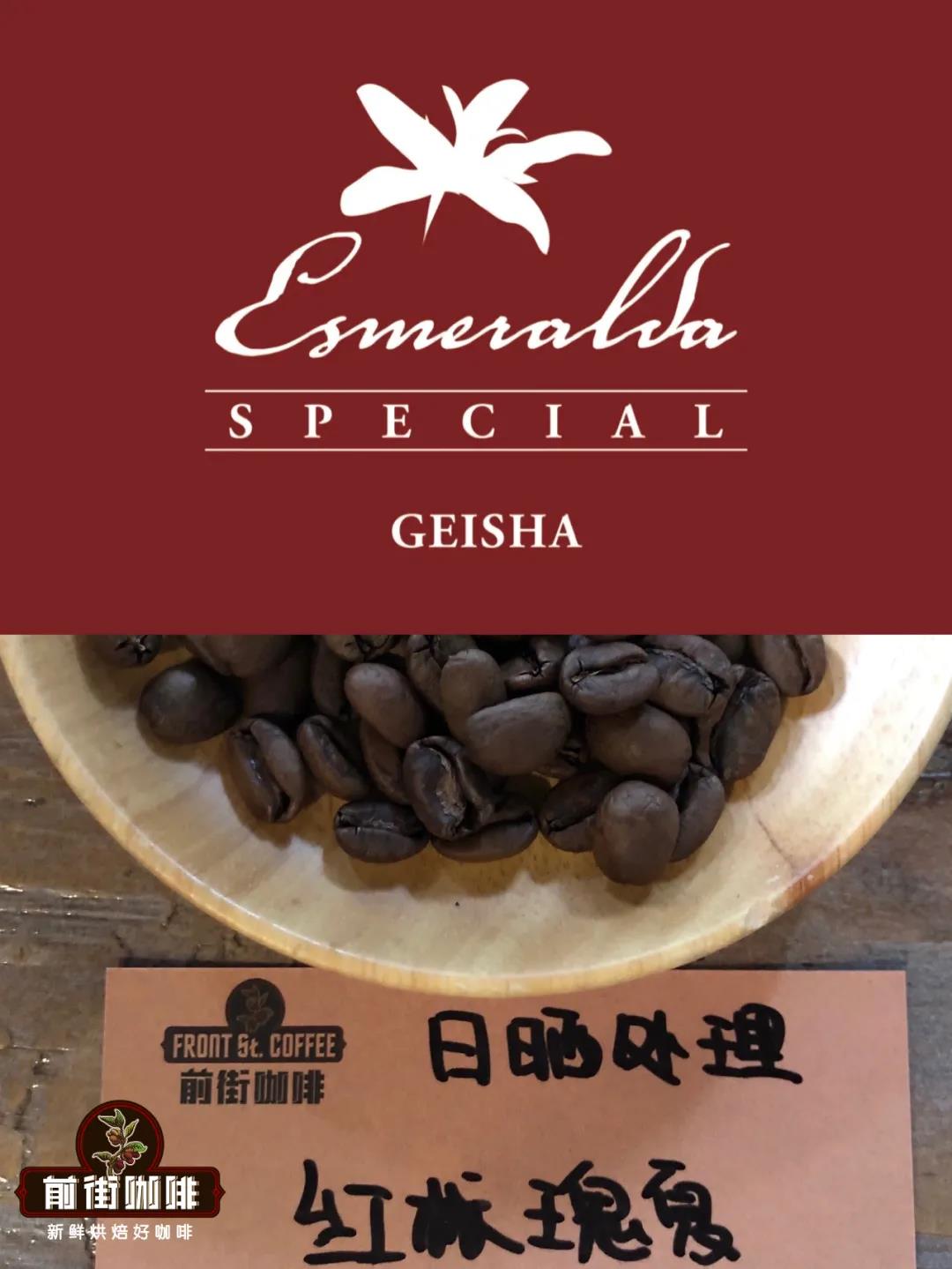
Red bid batches can only be obtained through global auctions. Guests often ask whether the competitive red bid is good to drink or the red bid is good to drink. In fact, the non-competitive red bid and the competitive red bid belong to the same plot. The difference lies in whether they participate in the bidding or not. Qianjie coffee thinks that it is not necessary to drink the bidding grade, first, the price is really high, and second, if you just want to try, the red mark is also a good choice. The red standard rose summer of Qianjie Coffee Emerald Manor comes from the Burmese yarn plot. This grade of rose summer is treated in the sun or water, with special, bright floral and citrus aromas.
Private collection of Private Collection
Private collection, commonly known as green standard, is not a batch of independent competitions, planting rose summer varieties that do not participate in bidding but are still of excellent quality. Micro-batch mixed beans from different plots such as Jaramillo and Canas Verdes were planted at 1600-1800 meters above sea level.
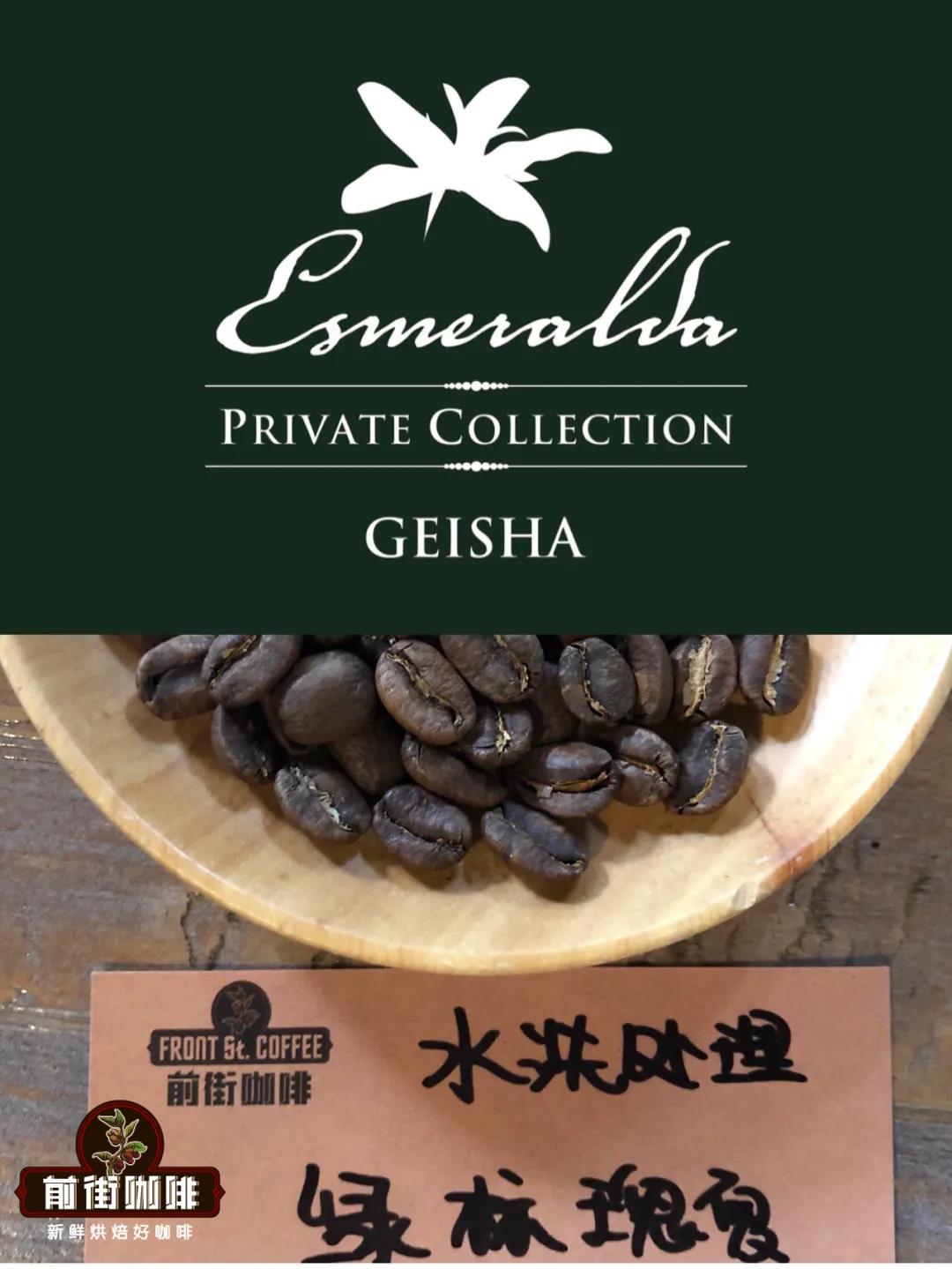
Because the mode of mixed beans is adopted, it is not specified in detail on the plot, so sometimes the flavor of the green mark is very similar to that of the red mark, but the next product may be different. Qianjie coffee feels like buying a lottery ticket. Maybe the batch you drink this time is the taste of the red mark. Green roses will be treated by sun / water washing treatment. The green standard rose summer of Qianjie Coffee Jade Manor is treated with water washing. The green rose summer of water washing treatment has fresh jasmine and ginger fragrance, citrus-like bright acidity, thick and juicy taste.
Rosa 1500 Geisha1500
Geisha1500 is commonly known as the blue standard. Planted at 1400-1500 meters above sea level, the blue label is a mixture of rose coffee beans from three different plots: Jaramillo, Canas Verdes and El Velo. In previous years, the blue standard rose summer only washing treatment, but this year the blue standard batch added the sun treatment method.
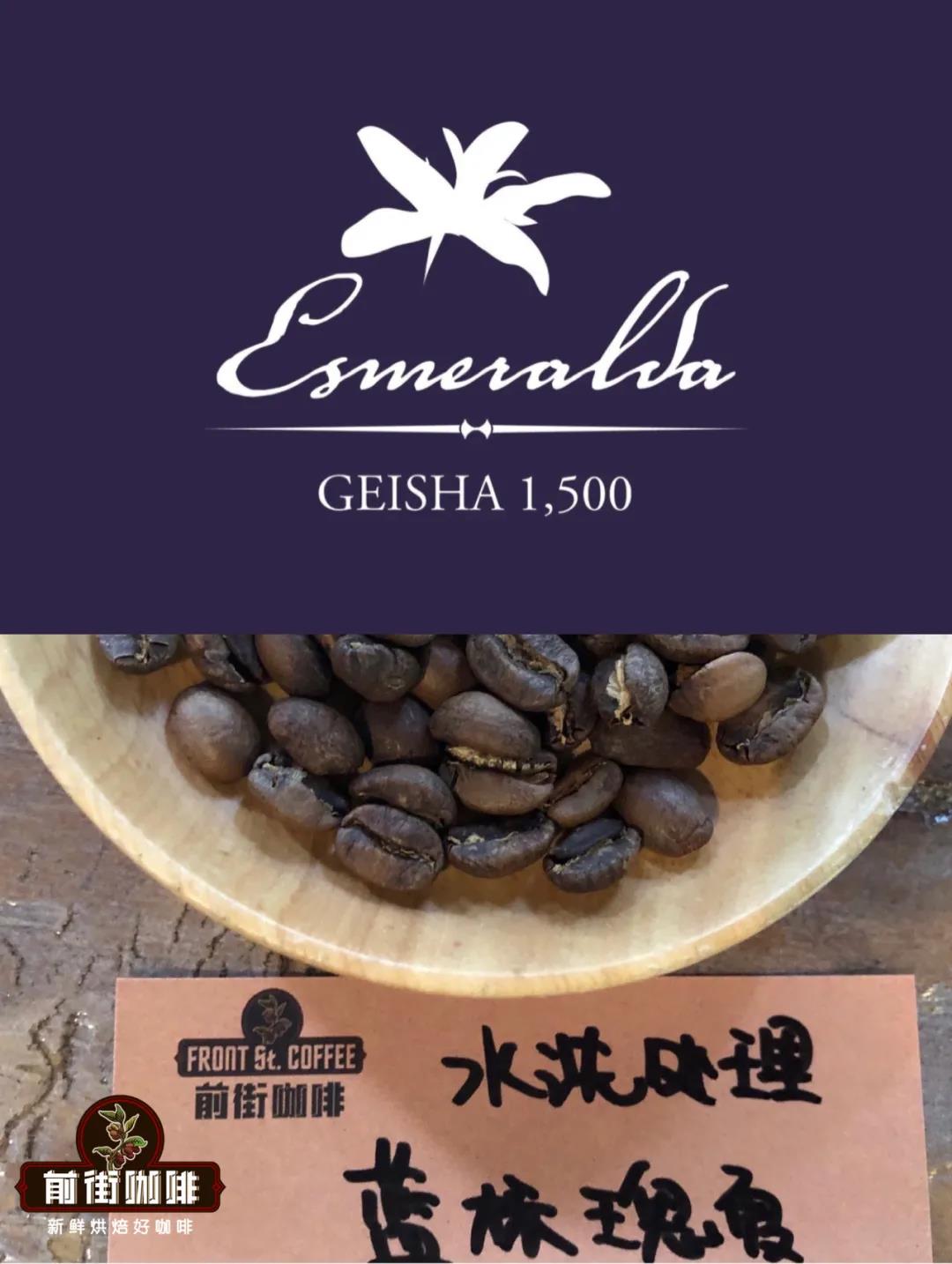
The rosy blue of Qianjie coffee is slightly floral, sour and sweet, and the taste is not thick, while the blue label of sun-treated coffee has a slightly floral aroma, obvious fermentation, berry juice-like taste and high sweetness. Qianjie believes that the jadeite blue standard has introduced the sun treatment method in the new production season, which is undoubtedly the welfare of the broad masses of consumers. in the past, if you want to drink the rosy summer of the jadeite manor, you have to buy a high-priced red / green mark. The blue mark of the sun allows consumers to buy a rose summer of the jadeite manor at a low price and a high performance-to-price ratio.
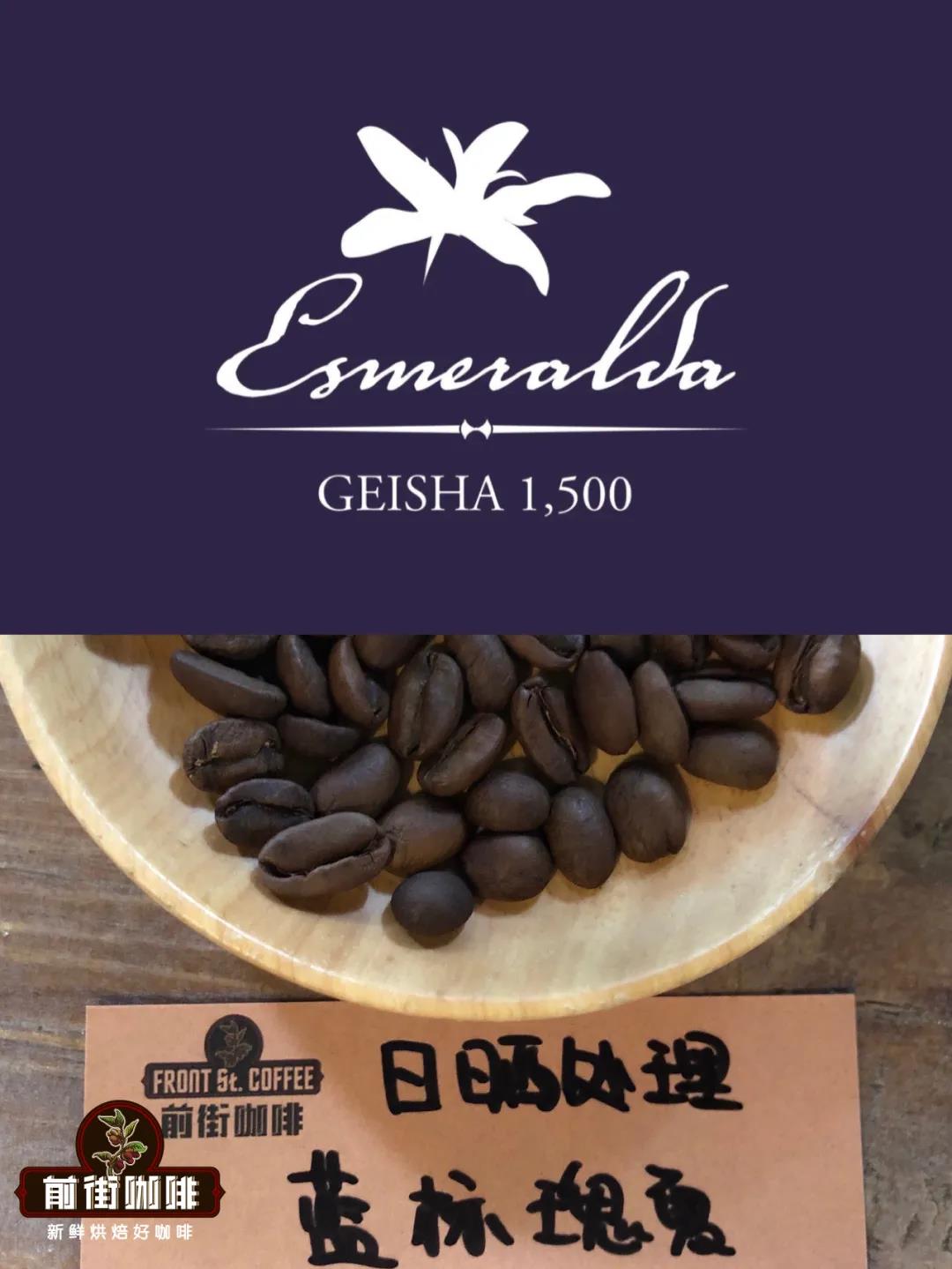
Treatment of rose summer in jadeite manor
Sun treatment
Natural
In the sun treatment of the emerald manor, the harvested coffee fruit will be sent directly to the courtyard to dry. The coffee fruit dries slowly, the coffee beans are still inside, and the coffee beans are full of fruit and aroma. Coffee fruit will be evenly dried. Depending on the weather and the composition of the venue, the coffee will dry on the concrete platform for 3 to 5 days (8 hours a day). When it is dry enough, rotate it in a Guardiola dryer for 72 hours to complete the drying process and prevent fermentation. After the drying is finished, use the machine to remove the pulp and other parts.
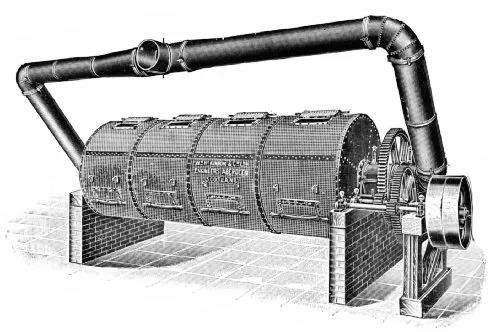
Guardiola is the preferred drying method, as long as the size of the coffee block allows, Guardiola can handle a large amount of coffee. Guardiola is a horizontal rotating drum that allows warm air to flow around the beans and removes moisture. When the coffee beans are dried, put them in a nylon bag and store them in the warehouse for 30 to 45 days. This step, also known as "reposo", helps stabilize coffee beans and improve the flavor in the cup.
Washing treatment
Washed
In the water system treatment of the Emerald Manor, the harvested berries are used to peel most of the pulp from the coffee beans, and then the shelled beans are led to a clean sink, soaked in water and fermented to completely remove the residual pulp layer. Through water treatment, unripe beans and defective beans are selected because of buoyancy.
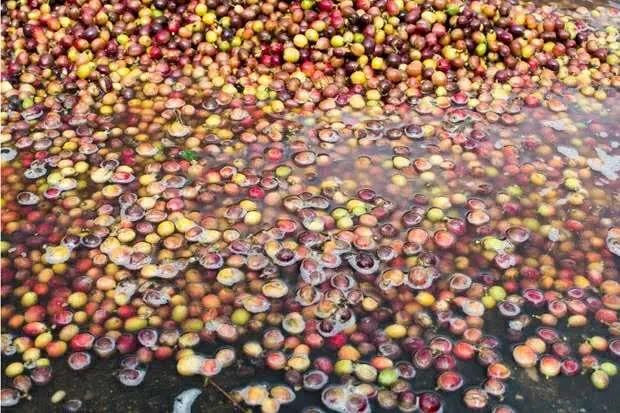
Then peeling, also known as beating, is to remove the peel of the coffee fruit through a machine, and the rest of the coffee with pectin is put into the fermentation tank to ferment for 1 to 2 days to decompose the pectin attached to the coffee beans. Then wash the coffee beans with clean water and dry the raw beans with sheepskin until the moisture content reaches 12% and remove the sheepskin when it is exported.
Experience of coffee baking in Qianjie
[sun Red Standard Rose Summer] Yangjia 800N, bean dosage 380g
The furnace temperature is 150 ℃, the firepower is 120, and the throttle is set at 3; the temperature recovery point is 1 ", and the throttle is opened to 4 at 140℃, and the firepower remains unchanged; when the furnace temperature is 147.6 ℃, the bean meter turns yellow, the grass smell disappears completely, and enters the dehydration stage; when the furnace temperature reaches 150 ℃, the firepower is adjusted to 100, and the throttle remains unchanged. The smell of toasted bread has obviously changed to the smell of coffee, which can be defined as a prelude to an explosion. At this time, it is necessary to listen carefully to the sound of the explosion point, when the sound of the explosion point begins to explode, the throttle opens to 4, and after the explosion, the development of the ℃ after the explosion begins.
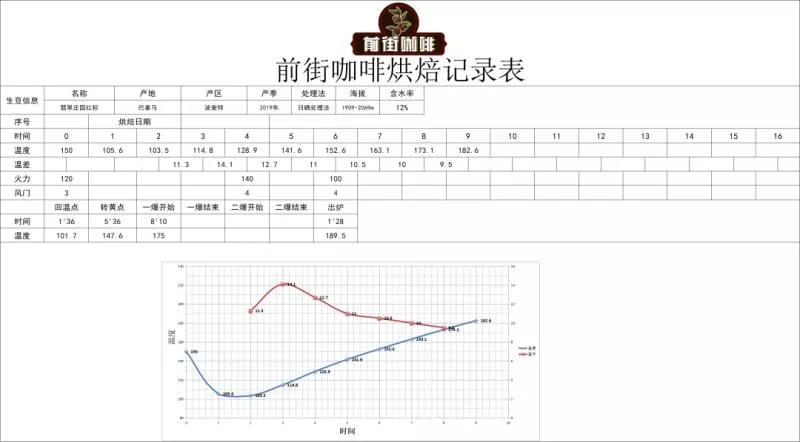
[Green label rose summer] Yangjia 800 N, bean dosage 500 g
The oven temperature is 190 ℃, the fire power is 150, the damper is opened 3; the temperature returning point is 136 ", when the oven temperature is 140 ℃, the damper is opened to 4, and the fire power is reduced to 130; when the oven temperature is 150.8 ℃, the bean surface turns yellow, and the grass smell completely disappears, entering the dehydration stage; when the oven temperature reaches 166 ℃, the fire power is adjusted to 110; the damper is unchanged; when the oven temperature is 755", the fire power is adjusted to 90 at 176 ℃; the ugly beard wrinkles and black stripes appear on the bean surface, and the taste of toast obviously changes to coffee fragrance, which can be defined as the prelude of the first explosion. At this time, the sound of the first explosion point should be heard clearly. The first explosion starts at 8 30", the damper is opened to 5, and the fire power is adjusted to 60 at 187 ℃; after the first explosion, the bean surface develops to 130, and the oven is placed at 193.5 ℃''''
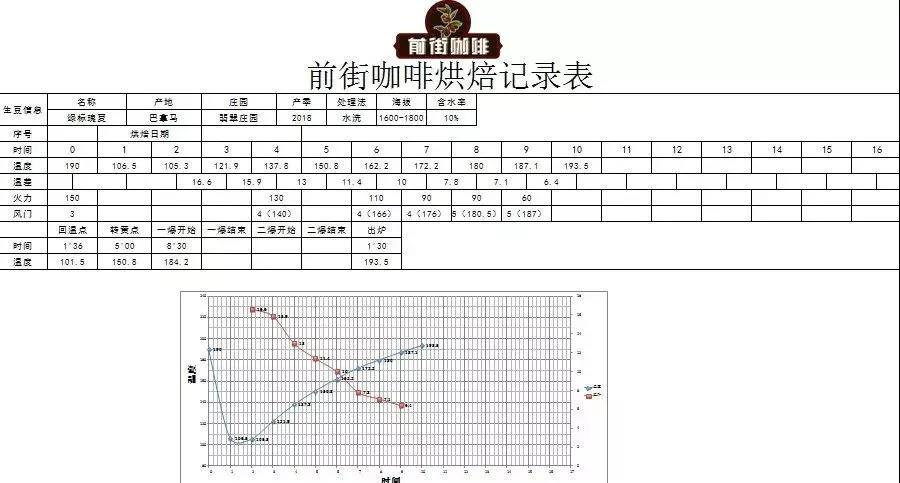
[washing Blue Standard Rose Summer] Yangjia 800N, bean dosage 480g
Furnace temperature 180 ℃, firepower 130, throttle opening 3; temperature recovery point 1: 39: 32 "; when furnace temperature is 130 ℃, the throttle is opened to 4, the firepower remains unchanged. When the furnace temperature is 151.6 ℃, the bean table turns yellow, the smell of grass disappears completely, and enters the dehydration stage, when 7 times 39 ℃ 56 ", the bean surface appears ugly wrinkles and black markings, and the taste of toast obviously turns into coffee, which can be defined as a prelude to an explosion.
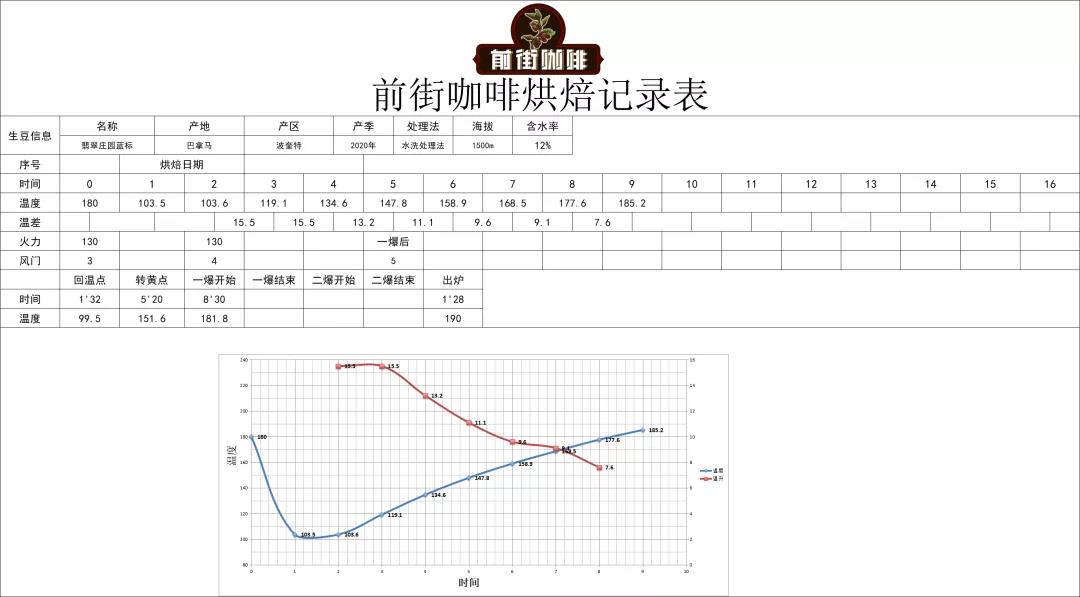
[sun blue standard rose summer] Yangjia 800N, bean dosage 480g
Furnace temperature 180 ℃, firepower 130, throttle opening 3; temperature recovery point 1: 39: 32 "; when furnace temperature is 130 ℃, the throttle is opened to 4, the firepower remains unchanged. When the furnace temperature is 151.6 ℃, the bean table turns yellow, the smell of grass disappears completely, and enters the dehydration stage. When it comes to the stage of dehydration, ugly wrinkles and black markings appear on the bean surface, and the smell of toast obviously turns into coffee, which can be defined as a prelude to an explosion. At this time, it is necessary to listen clearly to the sound of an explosion point. C to 8 times 39 shares 30 "starts to explode, the throttle opens to 5, and after an explosion, it develops into a pot with 1 cup 39 players 28190 ℃.
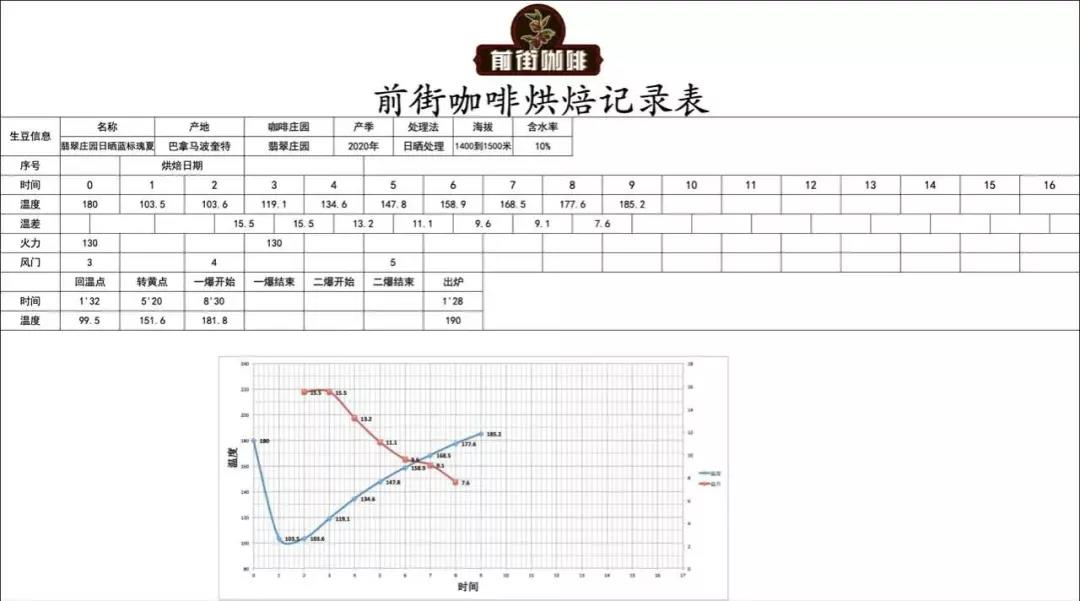
Survey report on Rose Summer Cup of Qianjie Jade Manor
[red standard rose summer cup test]
Dried incense: Jasmine, citrus
Wet fragrance: citrus, lemon, honey
Entrance: lemon, honey, berries, orange peel, mango, cream, citrus, tea
[green label Rose Summer Cup]
Dried incense: Jasmine, ginger
Wet fragrance: lemon, sweet orange
Entrance: lemon, orange, honey, cream, almonds, tea
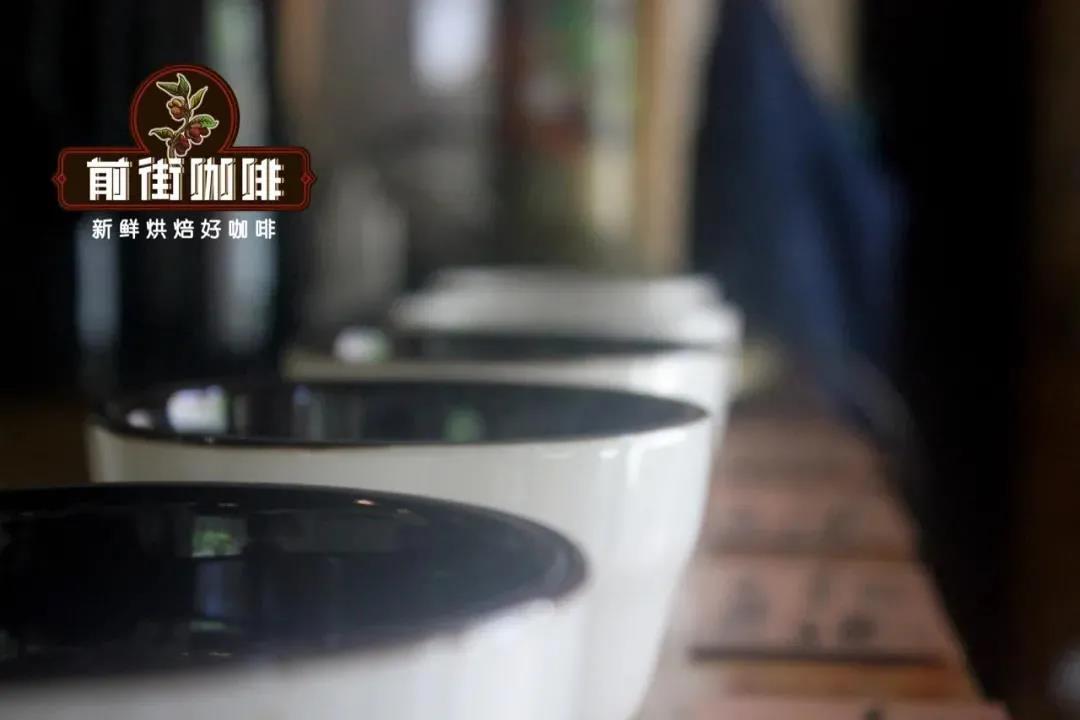
[Washed Blue Standard Rose Summer Cup Test]
Dry fragrance: floral, citrus
Wet aroma: citrus, lemon
Inlet: Citrus, lemon, honey, nuts, tea
[Sunlight blue standard rose summer cup test]
Dry aroma: fermentation, caramel
Wet fragrance: floral, fermented aroma
Inlet: lemon, honey, melon, berry, fermentation
Front Street Coffee Brewing Experience
Filter bowl: V60 #01
Powder: 15g
Powder water ratio: 1:15
Grinding degree: BG 6m (No. 20 sieve pass rate 80%)
Water temperature: 90-91 degrees
* Regarding the grinding degree, the front street is determined by sieving. According to the grinding recommendations provided by the American Fine Coffee Association SCA for hand-brewed coffee, the front street is combined with actual operation verification. Using different grinding degrees to brew, there are obvious differences in the finished products, and the grinding degree of each coffee bean will be different. This is the meaning of sieving. If there is no sifter at home, the suggestion of Front Street Coffee is to observe the speed of water flow to judge, water flow fast is coarse powder, water flow slow is fine powder.
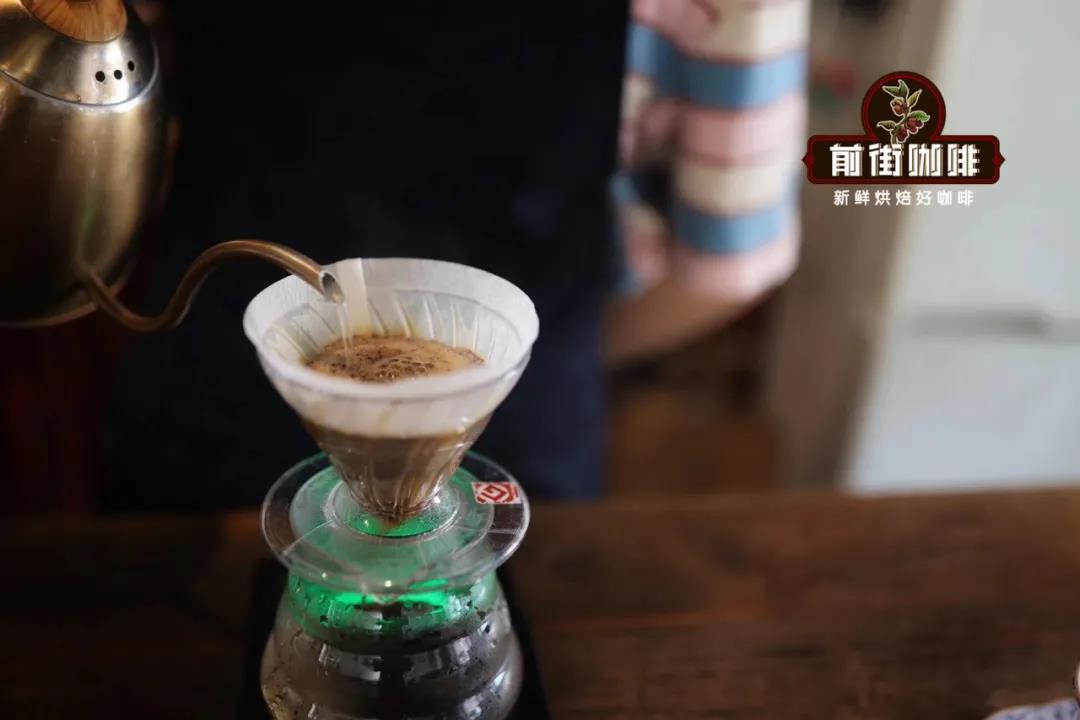
Qianjie coffee is extracted by stages, also known as three-stage brewing: steaming with 30 grams of water for 30 seconds, injecting water around a circle to 125 grams for stages, continuing to inject water to 225 grams when the water level is about to be exposed to the powder bed, removing the filter cup when the water level is about to be exposed to the powder bed, (steaming starting timing) the extraction time is 2 grams 3900 "- 2 grams 3920".
[red standard rose summer cooking flavor] there are bright roses, citrus aromas, black rice, berries, apricots, compound fruits, honey, thick juice, rich flavor levels, sweet obvious.
[green standard rose summer cooking flavor] the jasmine is full-bodied and sweet, with citrus, berry, juice, cream, green tea, orange peel and cantaloupe, with rich overall flavor and long-lasting citrus flavor.
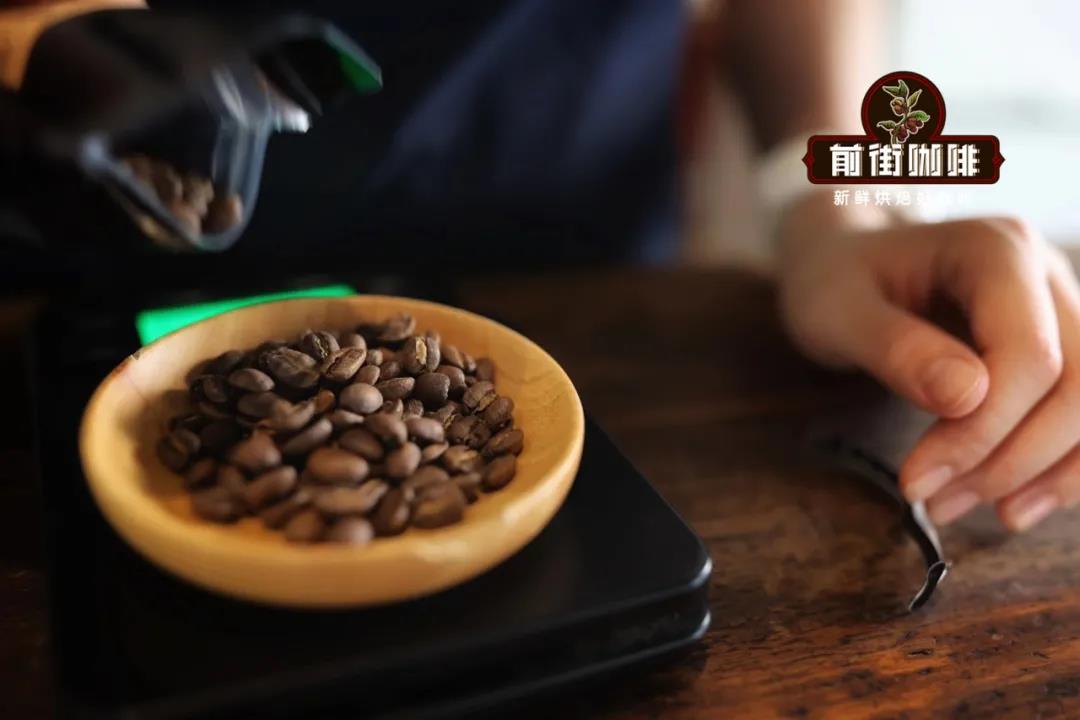
[washing blue standard cooking flavor] Flower fragrance, soft sour notes of lemon and grapefruit in the entrance, honey sweet in the middle, sweet oolong tea and brown sugar at the end, clean and bright taste.
[sun blue standard cooking flavor] it smells fermented aroma and fruit sweetness, tastes like melons and tropical fruits, like fruit juice, and the overall sweetness is very high.
For more boutique coffee beans, please add private Qianjie coffee on Wechat. WeChat account: kaixinguoguo0925
Important Notice :
前街咖啡 FrontStreet Coffee has moved to new addredd:
FrontStreet Coffee Address: 315,Donghua East Road,GuangZhou
Tel:020 38364473
- Prev
Philadelphia pressure Operation Guide AeroPress what is the difference between front pressure and reverse pressure? Philharmonic pressure test
Ailao pressure is one of the most popular brewing methods on the market. This is an intuitive, portable and simple device. It is also very rich in functions. Although AeroPress comes with standard brewing instructions, many AeroPress brewers choose to use the inversion method, which involves starting brewing in an inverted way. This allows the brewer to soak the coffee grounds in water for longer.
- Next
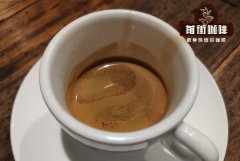
The quality of Italian coffee is unstable, which may be caused by the temperature of coffee powder.
No barista will ignore the effect of "extraction temperature" on coffee, but few people realize that the extraction temperature is actually determined by "water temperature" and "coffee powder temperature". In daily operation, it is difficult for us to have the time and energy to accurately measure the temperature of coffee powder. However, excessive heat will cause the aroma of coffee powder to volatilize ahead of time, which has become coffee.
Related
- Beginners will see the "Coffee pull flower" guide!
- What is the difference between ice blog purified milk and ordinary milk coffee?
- Why is the Philippines the largest producer of crops in Liberia?
- For coffee extraction, should the fine powder be retained?
- How does extracted espresso fill pressed powder? How much strength does it take to press the powder?
- How to make jasmine cold extract coffee? Is the jasmine + latte good?
- Will this little toy really make the coffee taste better? How does Lily Drip affect coffee extraction?
- Will the action of slapping the filter cup also affect coffee extraction?
- What's the difference between powder-to-water ratio and powder-to-liquid ratio?
- What is the Ethiopian local species? What does it have to do with Heirloom native species?

